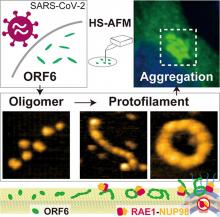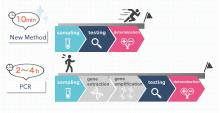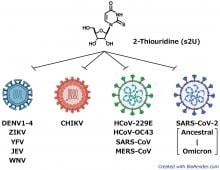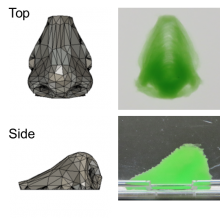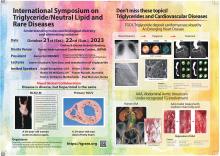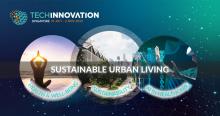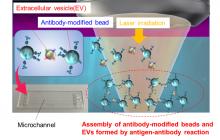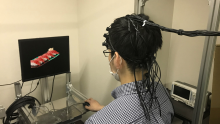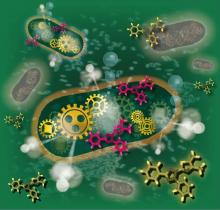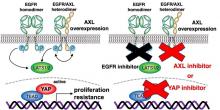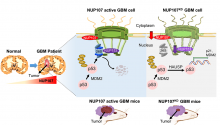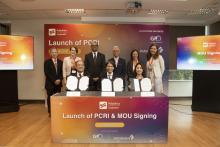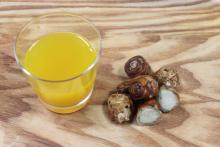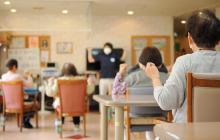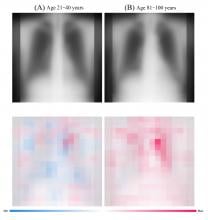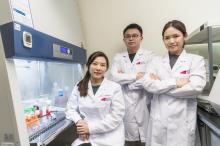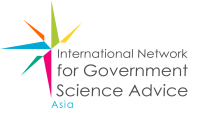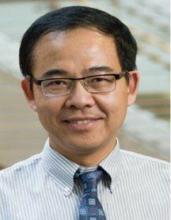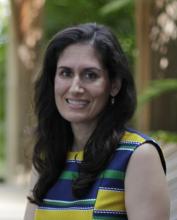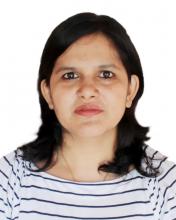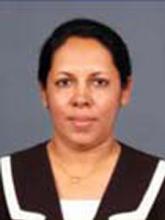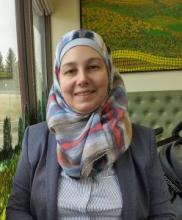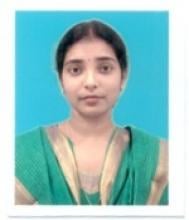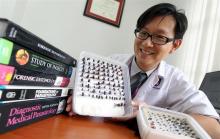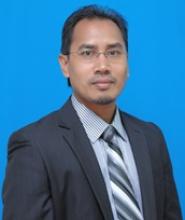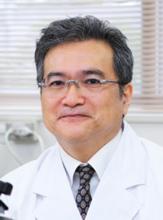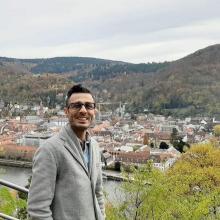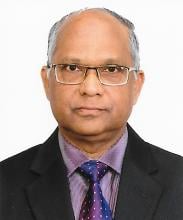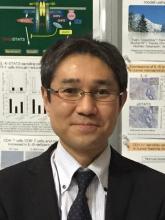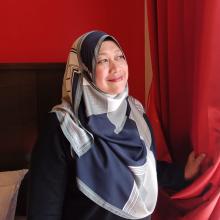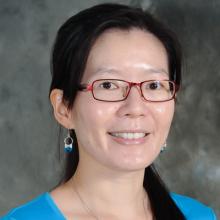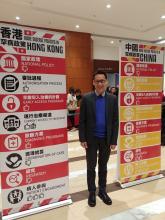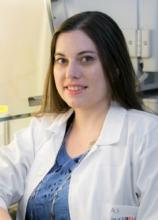Medicine & Healthcare
News
02 Nov 2023
A researcher from Osaka University has investigated the associations between mask usage and the reasons people give for wearing a mask. Online surveys were conducted before and after policies that downgraded the status of COVID-19. The study found that 59% of respondents continued wearing masks even after policy changes. Several sociological and psychological reasons other than disease prevention for mask usage were identified.
27 Oct 2023
Researchers at Kanazawa University report in the Journal of Physical Chemistry Letters high-speed atomic force microscopy studies that shed light on the possible role of the open reading frame 6 (ORF6) protein COVID19 symptoms.
26 Oct 2023
Research from Osaka University demonstrates a nanopore-based technique that can detect different variants of SARS-CoV-2, the virus that causes COVID-19. The method was very effective in detecting the Omicron variant of the virus in the saliva of people with COVID-19.
20 Oct 2023
A broad-spectrum antiviral drug candidate, 2-thiouridine, that targets positive-strand RNA viruses has been identified and characterized.
20 Oct 2023
New perspective argues pursuing fair AI for healthcare requires cross-disciplinary collaboration to translate methods into real-world benefits.
16 Oct 2023
Researchers from Osaka University developed a cell-friendly means of bioprinting at high fidelity. By successive injection of a cell-based ink and a printing support, the ink solidified into defined geometries, even into the shape of a human nose. Printed cells remained viable for at least two weeks. This work is an important milestone toward developing lab-grown tissues and organs, and eventually advancing regenerative medicine as well as animal-free drug safety testing.
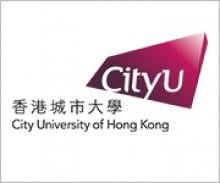
12 Oct 2023
Chemotherapy for cancer treatment often results in collateral damage to healthy cells and other adverse effects. A research team led by City University of Hong Kong (CityU) recently developed “sono-sensitised chemotherapy” (SSCT), a new form of ultrasound-activated chemotherapy, which further enhances the precision for eradicating deeper tumours with centimetre range of tissue penetration and minimises side effects.
11 Oct 2023
A research team led by Osaka University developed a theranostics approach to both diagnose and treat certain pancreatic cancer cases. They radioactively labeled a monoclonal antibody targeting glypican-1, which is highly expressed in pancreatic cancer, then administered it to disease model mice. One label, 89Zr, showed high uptake in tumors, which would allow early detection of pancreatic cancer with PET scans. Another label, 211At, was used with alpha therapy to significantly slow tumor growth.
11 Oct 2023
The International Symposium on Triglyceride/Neutral Lipid and Rare Diseases will be held at the Kyoto International Conference Center on October 21 and 22, 2023. The symposium is organized by the International Symposium on Triglyceride/Neutral Lipid and Rare Diseases Conference Committee, which is led by Dr. Ken-ichi Hirano (Graduate School of Medicine, Osaka University) and the Japan Intractable Diseases (Nanbyo) Research Foundation.
10 Oct 2023
Asia’s premier technology-matching platform returns for its 11th edition from 31 October to 2 November at Marina Bay Sands.
05 Oct 2023
Hunting for supermassive black holes, Coastal survival at risk, Calcium and dead cell clean-up, Two naps are better than one & Pineapple leaf prosthetics. Read all in the latest Editor's Choice.
05 Oct 2023
Osaka Metropolitan University researchers have used the power of laser light to accelerate the reaction between cancer cell-derived extracellular vesicles—a kind of nanoparticle—and antibody-modified microparticles. The three-dimensional structure of the resulting aggregates was then analyzed using a confocal optical system. The results demonstrated the ability to measure, within 5 minutes, approximately 1,000 to 10,000 nanoscale EVs contained in a 500 nL sample.
03 Oct 2023
The researchers from Osaka University showed how two psychological factors, belief in just deserts (BJD) and human rights restrictions (HRR), differ across countries. BJD tended to be higher in Japan and lower in the UK, whereas HRR was higher in China and lower in Japan. Public health messages for high-HRR individuals could potentially be used effectively to reduce disease-related discrimination and prejudice.
15 Sep 2023
A reanalysis of studies on night shift naps reveals the ideal snoozing schedule that may help combat fatigue and drowsiness when staying up all night.
11 Sep 2023
Patients with a specific form of chronic indigestion react differently to images of food, compared to healthy control subjects or patients with irritable bowel syndrome.
11 Sep 2023
Researchers at Osaka Metropolitan University have developed a measurement technique that rapidly measures the number of viable bacteria in food products. They have succeeded in drastically reducing the inspection time from 2 days to about 1 hour. With this technology, it will be possible to confirm food safety before shipment from factories and prevent food poisoning.
10 Sep 2023
AXL and EGFR inhibitors combined hold promise in fighting certain head, neck, and lung cancers
10 Sep 2023
In this collaborative project between Newcastle University and Universiti Malaysia Perlis (UniMAP), the team aimed to create a sustainable, cost-effective lower limb prosthetic socket (LLPS) using natural fiber-reinforced composites. The objectives included designing a green LLPS, assessing its environmental impact, and engaging stakeholders. Pineapple Leaf Fiber (PALF) was chosen for sustainability. The project has also inspired worldwide interest in sustainable LLPS development through a press release, receiving inquiries from students at Nanyang Technological University in Singapore and a group of 7th graders in the USA.
08 Sep 2023
Capturing carbon dioxide, Shells go nuclear, Worms surf electric fields, Brain repair & Creating matter from light. Plus from our blog: Monitoring research for further impact. Read all in the latest Editor's Choice.
04 Sep 2023
Researchers from Osaka University have revealed that the expression of a specific isoform of GREB1 Is4 is induced in malignant melanoma cells by the melanocyte-specific transcription factor, MITF. They revealed that GREB1 Is4 stimulates pyrimidine biosynthesis and promotes cancer cell proliferation. Furthermore, the anti-tumor effect of antisense nucleic acids against GREB1 showed a potential new modality for malignant melanoma.
04 Sep 2023
In recent years, an emerging zoonotic pathogen called E. albertii, transmitted by wild animals such as raccoons, has garnered attention due to its remarkable similarities to several strains of Escherichia coli (E. coli), including O157, and its potential to cause severe illness, particularly in children. A research group at Osaka Metropolitan University has developed a novel culture medium that allows for the selective cultivation of E. albertii from raccoon fecal samples. This enabled the successful isolation of E. albertii even from samples with very low quantities of this bacterium. Their findings are expected to further elucidate the bacteriological characteristics of E. albertii and to contribute to the control of foodborne illnesses.
01 Sep 2023
Researchers at Kanazawa University report in Cell Reports how alterations in the nuclear pores lead to the degradation of anti-tumor proteins.
30 Aug 2023
How much is adequate screen time for a child? It is the question at the forefront of many parents’ minds. Now, a recent cohort study has found that the amount of screen time spent by one-year-olds is associated with developmental delays.
29 Aug 2023
It is the first local research and innovation platform enabling Primary Care Professionals from public and private healthcare to deliver stronger primary care and improve patients’ health outcomes
25 Aug 2023
Osaka Metropolitan University scientists have verified the anticancer effects of Kencur, a tropical plant of the ginger family, mainly grown in Southeast Asia, in cell and animal experiments. They found that Kencur extract and its main active components significantly inhibit cancer cell growth at the cellular and animal levels. Furthermore, the involvement of TFAM in the mechanism of action was confirmed.
23 Aug 2023
Osaka Metropolitan University researchers conducted a 5-year claims-based study of 655 non-frail or pre-frail older adults who were certified as having low care needs to investigate the relationship between the risk of frailty and two types of care services. The results showed that users of community-based adult care services had a 40% reduced risk of developing frailty compared to non-users. This suggests that utilizing appropriate support and services can prevent the progression of frailty.
21 Aug 2023
Deepak Verma from Chulalongkorn University and his international team of researchers are exploring ways to enhance chitosan using techniques like adding photosensitizers, dendrimers, and chemical modifications. They also surveyed the use of chitosan nanoparticles for medical purposes, notably wound dressings.
17 Aug 2023
Japanese fossil forest found, AI finds a way to people’s hearts, Language diversity and child social development & Supplement for kidney disease. Plus Submissions open for Asia Research News 2024. Read all in the latest Editor's Choice.
16 Aug 2023
Osaka Metropolitan University scientists have developed an AI model that accurately estimates a patient’s age, using chest radiographs of healthy individuals collected from multiple facilities. Furthermore, they found a positive relationship between differences in the AI-estimated and chronological ages and a variety of chronic diseases, such as hypertension, hyperuricemia, and chronic obstructive pulmonary disease. In the future, it is expected that AI biomarkers will be developed to predict life expectancy, estimate the severity of chronic diseases, and forecast surgery-related risks.
16 Aug 2023
A research team co-led by City University of Hong Kong (CityU) and The University of Hong Kong (HKU) has recently made a significant advancement in spinal cord injury treatment by using genetically modified human neural stem cells (hNSCs). They found that specifically modulating a gene expression to a certain level in hNSCs can effectively promote reconstruction of damaged neural circuits and restore locomotor functions, offering great potential for new therapeutic opportunities for patients with spinal cord injury.
Events
20 Nov 2019 to 21 Nov 2019
Organising partner - the Australian Digital Health Agency
07 Oct 2019 to 10 Oct 2019
Tracks include: Sustainability & Growth; Patient Experience; Unlocking the Value of AI; Value-based Care.
24 Sep 2019 to 26 Sep 2019
The leading event that brings together Asia’s pharmaceutical companies and supplies all in one place
06 Nov 2019 to 07 Nov 2019
The 5th Annual Biopharma Development & Production Asia Pacific is back with a 360˙ view on industry trends, new therapies, technical innovation and many more.

04 Nov 2019 to 06 Nov 2019
We bring together distinguished cancer researchers with complementary knowledge and expertise
from across the globe for the exchange of ideas and information.
13 Aug 2019 to 14 Aug 2019
Call for participation. Deadline: 30 April 2019
14 Nov 2019 to 15 Nov 2019
The goal of this conference is to address the emerging technologies and themes in Microfluidics, Lab-on-a-Chip and Organ-on-a-Chip fields as these areas are expanding and evolving.
11 Nov 2019 to 12 Nov 2019
The conference addresses the whole ecosystem of Cell & Gene Therapy and 3D-Bioprinting with a focus on 3D-Culture, Organoids, Bioprinting and Technology Platforms being developed to bring cell therapy, gene therapy and regenerative medicine to the clinic.
09 Sep 2019 to 10 Sep 2019
This conference brings together a focus on technology development as well as applications for biomarker analysis in cancer, cardiovascular disease and other disease classes.
09 Oct 2019 to 11 Oct 2019
Asia's Premier Partnering Event for the Global Biotechnology Industry
- « first
- ‹ previous
- 1
- 2
- 3
Researchers
I am an Assistant Professor in Health Services Policy and Management at the University of South Carolina Arnold School of Public Health, US. As a health services researcher and a rural health advocate, I am driven to advance rural health equity via productive, insightful research collaborations. My work applies global and hyper-local perspectives (rural-urban, county-level, state-level variations) building statistical models to examine rural healthcare delivery on outcomes, access, and welfare of women.
Professor Linfa Wang is a Professor with the Emerging Infectious Diseases Programme at Duke-NUS Medical School, Singapore.
Associate Professor Sophia Archuleta is the Head and Senior Consultant of the Division of Infectious Diseases at the National University Hospital, Singapore.
Ms. Mira Adhikari is a nursing faculty member on Pokhara Nursing Campus, Institute of Medicine, Tribhuvan University, Nepal. She has a rich experience of over 15 years in this profession.
Mangala Gunatilake is a veterinarian and professor at the Department of Physiology, Faculty of Medicine, University of Colombo, Sri Lanka.
Dr. Mais Aljunaidy is an expert in women's mental health and an instructor at the Department of Psychology, Bilkent University, Turkey.
Dr NK Prasanna is currently working as Sr. Scientist & Editor, Indian Journal of Biochemistry & Biophysics, Research Journals Division at CSIR-National Institute of Science Communication and Policy Research, New Delhi. Before joining CSIR (NIScPR), she was at IIT Guwahati. Dr Prasanna completed her Ph.D from Institute of Medical Sciences, Banaras Hindu University, Varanasi.
In CSIR-NIScPR, She served one important flagship journals viz. Indian journal of Biochemistry and Biophysics (IJBB; ISSN: 0301-1208) It is pertinent to mention that the journal ranks first among all the NIScPR journals as per the available Journal Metrics by international agencies such as Thomson Reuters and Scopus. Details of remarkable academic achievements of IJBB which she spearheading, both nationally and globally. The Indian journal of Biochemistry and Biophysics (IJBB) is a premier SCI-indexed bimonthly peer-reviewed research journal that publishes original research articles in the subject area of biochemistry and biophysics
Dr Heo is currently a senior lecturer at the Department of Microbiology and Parasitology, Faculty of Medicine, Universiti Teknologi MARA, Malaysia.
Dr. Tazeen Jafar is a global health leader and expert with a focus on implementation research in hypertension, cardiovascular disease, and chronic kidney disease.
Prof. Wang Hongyan is the deputy programme director and principal investigator of the laboratory of Neural Stem Cell at Duke-NUS Medical School, Singapore.
Dr Ramli is a Professor at Department of Psychiatry, Kulliyyah of Medicine at the International Islamic University Malaysia (IIUM).
Ji-Won Lee is an assistant professor at the Faculty of Dental Medicine at Hokkaido University, Japan,
Tadahiro Iimura is a professor in the Faculty of Dental Medicine, the Division of Dental Medicine, the Department of Pathobiological Science, Hokkaido University, Japan
A professor at the Bone Regenerative Engineering Laboratory, Regenerative and Biomedical Engineering Division, Graduate School of Biomedical Engineering, Tohoku University, Japan
My research background covers multidisciplinary fields such as Pharmaceutics, Cancer Nanomedicine, Bioengineering and Organ-on-a-chip platforms. My current research focuses on the development of dynamic biological barriers on a chip such as blinking human cornea on a chip.
Prof. Mahmudur Rahman is an Infectious Disease Epidemiologist. He is enlisted in the IHR roster of Experts and included in the Emergency committees of MERS CoV, Ebola and Poliomyelitis. He is also the Current Chair and member in different committees of WHO.
Hidemitsu Kitamura is an associate professor at the Section of Disease Control, the Institute for Genetic Medicine, Hokkaido University, Japan.
Professor Samuel Wong is a clinician with training in both Family Medicine and Public Health. He received his Doctor of Medicine degree from the University of Toronto and completed his Family Medicine residency training in Canada. He completed the Master of Public Health at the Johns Hopkins University, USA and the Doctor of Medicine (MD) research degree at The Chinese University of Hong Kong.
He is the Head of the Division of Family Medicine and Primary Healthcare and the Deputy Director of the School of Public Health and Primary Care since 2019. He has been the Co-Director of the Master of Public Health Programme since 2018 and is the Director of Thomas Jing Centre for Mindfulness Research and Training. He has also been appointed as the Associate Dean (Education) of the Faculty of Medicine since July 2019.
Professor Wong’s research interests include evaluating and developing mindfulness- based and mental health interventions in primary care; evaluating primary care services and developing primary care service models as well as multimorbidity.
Kartini Ilias is a senior lecturer and clinical psychologist in Faculty of Health Sciences, Universiti Teknologi MARA, Puncak Alam, Selangor.
Dr Kuan is currently a Professor and Consultant Haematologist at the Department of Medicine, Faculty of Medicine and Health Sciences, Universiti Malaysia Sarawak .
Professor Tetsuya Kodama is a biomedical engineer at the Laboratory of Biomedical Engineering for Cancer, Graduate School of Biomedical Engineering, Tohoku University.
Aamir Jalal Al Mosawi is advisor in pediatrics and pediatric psychiatry at the Children Teaching Hospital of Baghdad Medical City.
Toru Kondo is Professor of the Division of Stem Cell Biology at the Institute for Genetic Medicine, Hokkaido University.
Prof. Ashley St. John is an expert in viral immunology and emerging infectious diseases, such as dengue and Zika viruses. She heads the Laboratory of Immunity and Immune Pathology at Duke-NUS Medical School.
- « first
- ‹ previous
- 1
- 2
- 3
Giants in history
Sorry, nothing coming up for this discipline



